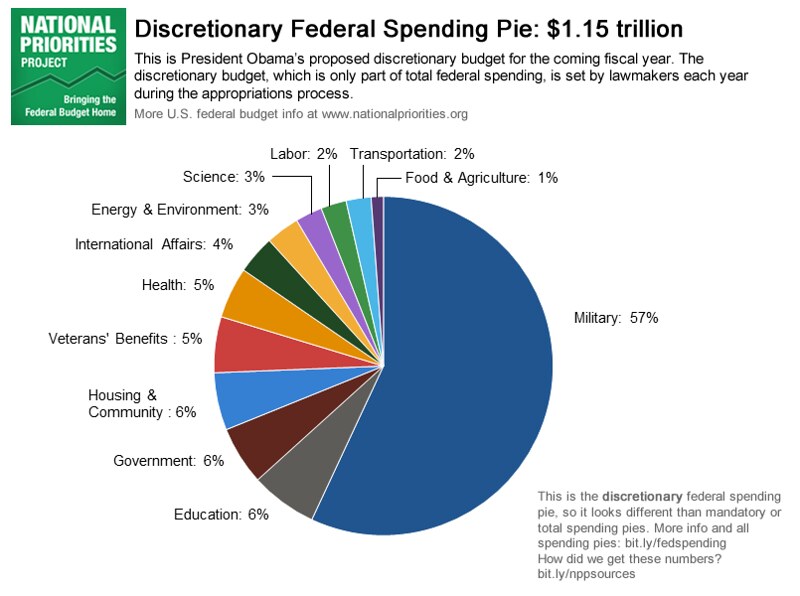You Ask, We Answer: Sequestration and the Pentagon
By
Chris Hellman
Posted:
|
Budget Process,
Military & Security
C. Chandler of Newcastle, WA, asks, “I keep hearing how bad these automatic spending cuts will be for the Pentagon. Will any other programs get cut?”
We get a LOT of questions about the automatic spending cuts – known as sequestration – called for under the Budget Control Act (BCA) of 2011. Under current law, the BCA will trigger automatic across-the-board discretionary spending cuts at the end of this year that will result in $1.2 trillion in cuts over the next decade.
“Discretionary spending” refers to spending that is newly appropriated each year through Congress's annual appropriations process, and it makes up roughly one-third of the total federal budget. It includes such things as education, housing assistance, environmental programs, and the Pentagon. Sequestration would require roughly $110 billion in discretionary spending cuts in fiscal year 2013, split evenly between the military and the remaining discretionary programs, known as non-defense discretionary (NDD).
Since total projected discretionary spending for FY2013 is about $1.15 trillion, these cuts would be severe. In fact, they were made that way on purpose, in order to convince Congress to come up with a better plan. As former Director of the Office of Management and Budget (OMB) Jack Lew said, sequestration was “meant to be an unpalatable option that all parties want to avoid."
But these automatic cuts would have a much greater impact on funding for non-defense programs than they would on Pentagon spending. Here’s why:
First, the military accounts for more than half of all discretionary spending.

So, while the dollar amounts of the cuts are split evenly between the Pentagon and NDD programs, the NDD cuts come from a smaller portion of the total discretionary pie.
Second, and more important, Pentagon spending has been growing much faster over the last decade than NDD funding. According to OMB, Pentagon spending, not including war costs and funding for nuclear weapons, grew 35 percent between 2002 and 2012, adjusted for inflation. Over that same period, NDD funding has only grown by a third of that amount, or 12 percent.
So when you hear someone talking about possible Pentagon spending cuts, remember – not all cuts are created equal.